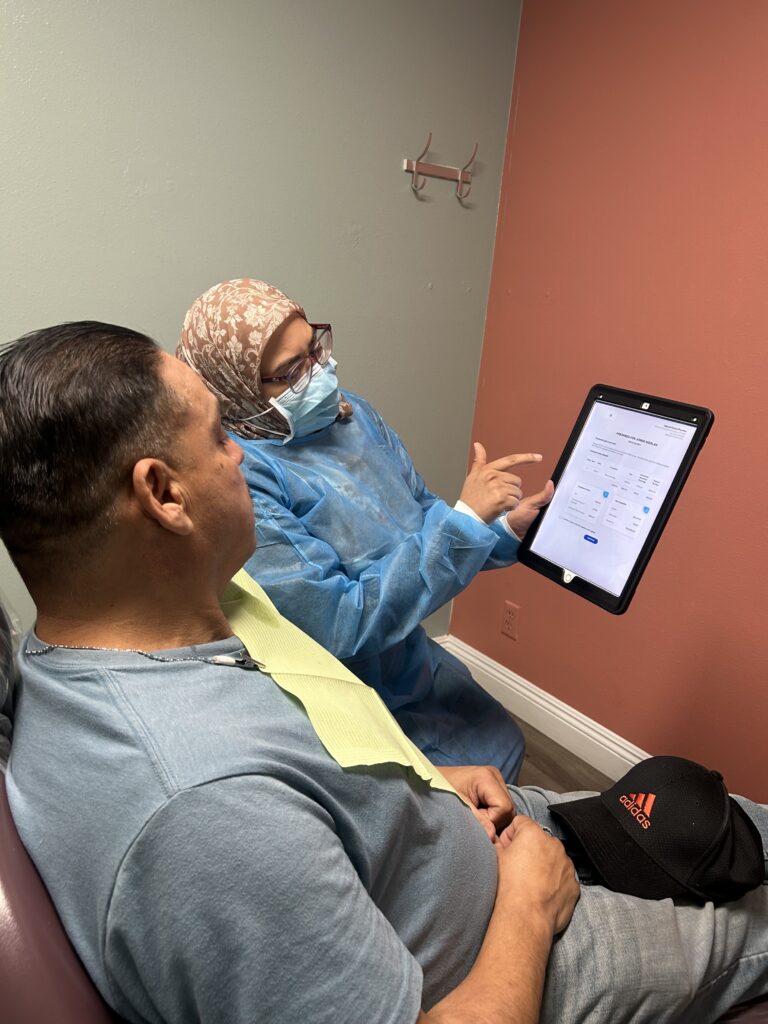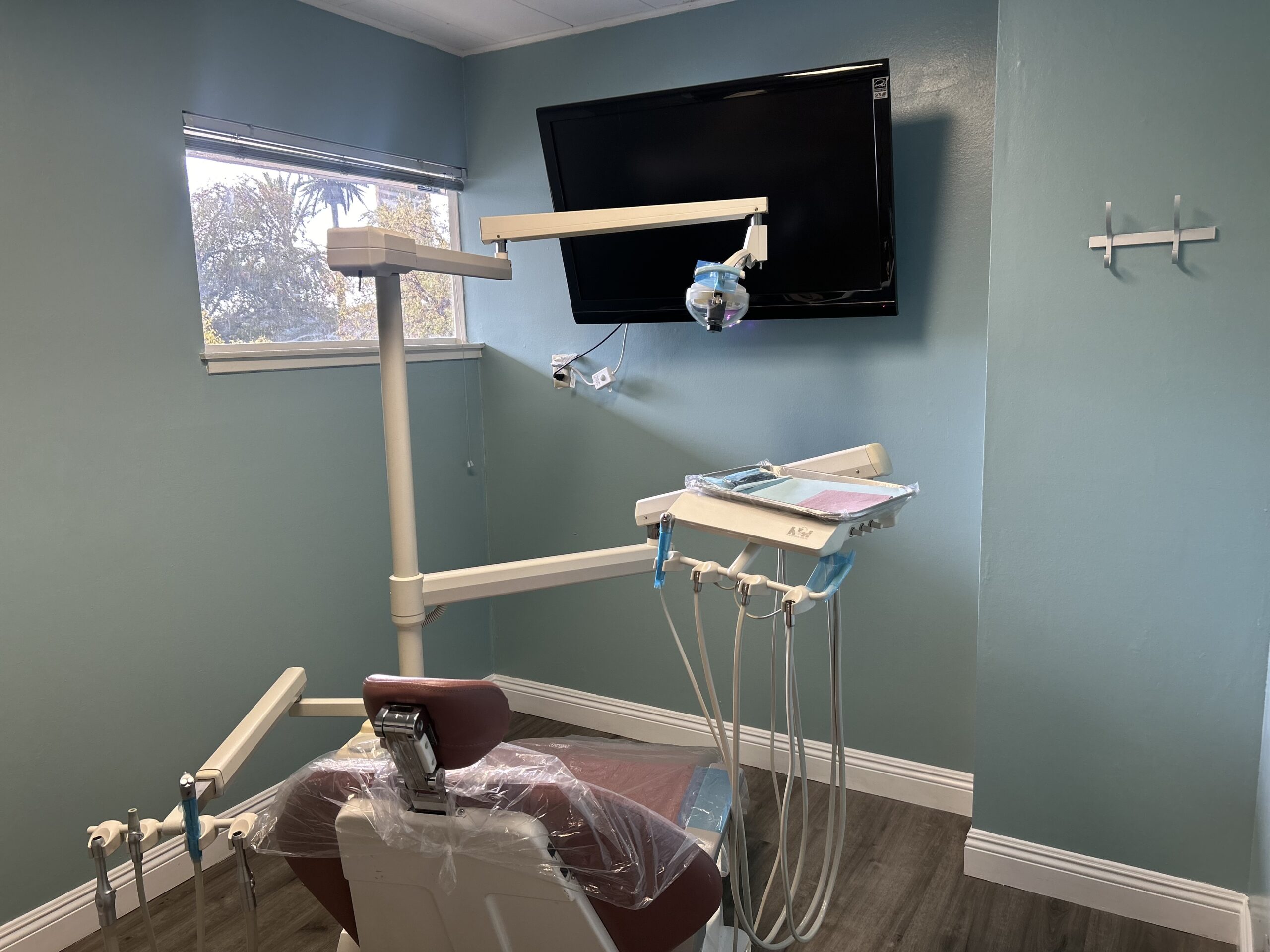Getting a dental implant can stir a mix of anticipation, anxiety, and excitement. But in the end, it’s a rewarding step toward restoring your smile. Just like the procedure itself, the recovery journey comes with its own unique experience.
Whether you’re wondering how painful it will be, how long it takes to heal, or what foods you can eat, we’ve got you covered.
In this guide, we’ll walk you through each stage of dental implant recovery, practical tips to speed up healing, and how to manage discomfort.
Read along to learn more!

Understanding the Dental Implant Healing Stages
Healing from a dental implant happens in several stages, and each stage requires unique responses from you and your dentist.
- Immediate Post-Surgery (First 24-48 Hours)
- Expect some bleeding and swelling.
- You’ll need to rest and apply ice packs to reduce discomfort.
- Avoid strenuous activities and follow your dentist’s medication instructions. Should bleeding and swelling worsens after this period, visit your dentist at once for proper treatment.
- Early Healing (First Two Weeks)
- Swelling and bruising should gradually decrease by this stage.
- Stitches (if used) will dissolve or be removed by your dentist.
- Soft foods and careful oral hygiene are crucial.
- Osseointegration (3 to 6 Months)
- The implant fuses with your jawbone during this phase. This process is called osseointegration.
- No pain should persist; if it does, again, it’s important to consult your dentist.
- Regular dental check-ups ensure everything is healing correctly.
- Final Restoration (After 6 Months)
- The implant is fully integrated, and the final crown is placed.
- Normal eating and speaking functions are expected to be restored.
How Painful is Dental Implant Recovery?
A study analyzed the pain degree after dental implantation and its influencing factors. Based on the study, pain levels change at different times after surgery. Right after the procedure, most patients (about 82%) felt no pain, while a small percentage experienced mild (12%), moderate (4%), or severe pain (less than 1%).
At the 24-hour mark, pain was more noticeable—about half of the patients still had no pain, but 36% reported mild pain, 12% had moderate pain, and around 3% experienced severe pain.
By 72 hours, the discomfort had mostly subsided. About 64% felt no pain, 26% had mild pain, 9% had moderate pain, and only 1.5% reported severe pain.
While pain levels vary during the recovery process, generally, discomfort during post-implant procedures can be described as manageable.
Here’s what to expect:
- When does a dental implant hurt the most? Pain and swelling peak within the first 48 hours and start subsiding after.
- How long will my mouth hurt after dental implant surgery? Most discomfort disappears within a week, but slight tenderness can last a few weeks.
- What is the best pain relief after dental implants? Over-the-counter medications like ibuprofen or acetaminophen work well. Your dentist may prescribe stronger pain relievers if necessary.

How to Speed Up Dental Implant Recovery
Speeding up your recovery process often involves simple, yet proven strategies.
- Stick to a soft diet for the first few weeks to avoid putting pressure on the implant site.
- Get enough rest and avoid heavy physical activity.
- Use cold compresses for swelling relief within the first 48 hours.
- Rinse gently with salt water or prescribed mouthwash.
- Maintain excellent oral hygiene while avoiding direct contact with the implant site.
- Avoid smoking and alcohol, which slow down healing significantly.
The Best Foods for Dental Implant Recovery
Your diet plays a crucial role in healing. Here’s what you should focus on:
Soft Foods to Eat After Surgery
- Mashed potatoes, scrambled eggs, yogurt, and soups
- Smoothies (without using a straw)
- Oatmeal and soft fruits like bananas or avocado
Want to learn more about what you want to eat after a dental implant surgery? Check out this blog post.
Foods to Avoid
- Crunchy foods like nuts and chips
- Spicy foods that may irritate the surgical site
- Hard meats and bread that require excessive chewing
When Can You Eat Normally Again?
Most people transition to a normal diet within 2-3 weeks, but always listen to your body and follow your dentist’s recommendations.

Essential Nutrients for Faster Healing
While the ranking article touched on vitamins, let’s dive deeper into how nutrition aids recovery:
- Calcium & Vitamin D – Supports bone integration and overall healing. Vitamin-rich foods include wild salmon, egg yolk, soy or almond milk. Calcium-rich foods, on the other hand, include milk, Greek yogurt, cottage cheese, and milk.
- Vitamin C: Helps with tissue repair and boosts the immune system. Eat soft foods like peaches, kiwi, and strawberries.
- Zinc: Aids in wound healing and reduces inflammation. To ensure you get enough zinc in your diet, try soft foods like mashed sweet potatoes, avocado, banana, tofu, scrambled or poached egg.
- Protein: Essential for rebuilding tissues and speeding up recovery. Add these high-protein foods to your everyday diet: soft-boiled eggs, Greek yogurt, cottage cheese, salmon, chia seeds blended with your smoothies.
- Omega-3 Fatty Acids: Found in flaxseeds and fish such as tuna, this can help reduce post-surgical inflammation.
By focusing on a nutrient-rich diet, you give your body the building blocks it needs to heal efficiently.
How Do You Know If Your Implant is Healing Correctly?
Watch for these signs of healthy recovery:
- Gradual reduction in pain and swelling
- No excessive bleeding after the first few days
- The implant site looks clean with no signs of pus or infection
However, if you notice persistent pain, swelling, or a loose implant, contact your dentist in Upland California immediately.
Consult an Upland Dentist
Recovering from a dental implant procedure doesn’t have to be overwhelming. By following these steps, maintaining a healthy diet, and prioritizing oral hygiene, you’ll be on your way to a fully healed and functional implant. Take it one step at a time, dental implant care requires long-term support.
But before you know it, your implant will feel like a natural part of your teeth!
If you ever have concerns during your recovery, don’t hesitate to reach us at Upland Dental Practice, Upland California.


